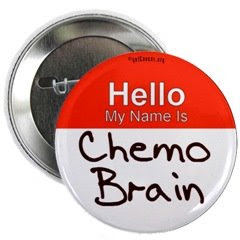Inflammatory Breast Cancer develops rapidly. It accounts for up to 6 percent of all breast cancer cases in the USA. Survival rates are lower than those of other locally advanced breast cancers. The exact cause of IBC is unknown.


.
Different from other breast cancers that have a lump, Inflammatory Breast Cancer has the breast appearing normal in the beginning until tumor cells get into and block lymphatic vessels in the skin. This lymph fluid gets backed up causing the breast to swell up and become red, swollen and sore.
Here are some symptoms of IBC:
- Sudden, fast change in the appearance of one breast, over the course of days or weeks
- Thickness, heaviness or visible enlargement of one breast
- Discoloration, giving the breast a red, purple, pink or bruised appearance
- Unusual warmth of the affected breast
- Dimpling or ridges on the skin of the affected breast, similar to an orange peel
- Itchiness
- Tenderness, pain or aching
- Enlarged lymph nodes under the arm, above the collarbone or below the collarbone
- Flattening or turning inward of the nipple
- Swollen or crusted skin on the nipple
- Change in color of the skin around the nipple
If the breast becomes red, swollen or sore, see a doctor immediately (I mean the same week!) to rule out Inflammatory Breast Cancer. If the breast fails to improve despite a week of antibiotics, ask your doctor to do more like ordering an ultrasound, mammogram or MRI and a biopsy of the skin. You might ask for a referral to a breast specialist.


Inflammatory Breast Cancer can easily be confused with a breast infection but it won't go away with antibiotics. A breast infection also causes redness, swelling and pain, but breast infections usually develop only during breast-feeding. You will probably have a fever with an infection.
Another cause of breast changes are breast surgery and radiation therapy. These might block the lymphatic vessels in breast skin, temporarily making the breast swell and become discolored. These changes will gradually go away.
The average women with IBC is 59 years. Black women are slightly more likely than are white women to get it. Men can develop IBC, too.
The average women with IBC is 59 years. Black women are slightly more likely than are white women to get it. Men can develop IBC, too.
If the biopsy confirms IBC, the next step is to see how advanced the cancer is. The doctor might order a CT scan of your chest and abdomen, chest X-ray, and bone scan. The biopsy will be tested for the presence or absence of hormone receptors and to see if the cancer produces too much of a protein called HER2. Inflammatory breast cancers are often hormone receptor negative and HER2-positive.
Inflammatory breast cancer is classified as stage III-B or stage IV breast cancer. Stage III-B is locally advanced cancer — meaning it has spread to nearby lymph nodes and to the fibrous connective tissue inside the breast. Stage IV cancer has spread to other parts of your body, beyond the breast. About two-thirds of newly diagnosed inflammatory breast cancers are stage III-B.
Treatment for IBC involves chemotherapy, surgery and radiation therapy. About half the women diagnosed with the condition survive five or more years, and nearly one-third are alive 20 years after diagnosis.
Chemotherapy is done first to shrink the cancer and resolve skin problems before surgery. This allows proper healing of the skin. Most ladies receive more chemotherapy after healing. Radiation (it's like getting an x-ray, very easy!) is given to kill any remaining cancer cells in the breast and under your arm. Typical RT is 30 to 35 treatments, once a day, on week days.
The doctor might recommend further treatment to prevent cancer from returning. If the cancer tested positive for estrogen receptors, then you'll take hormone pills that are engineered to kill the cancer cells (they like to "eat" hormones). If the cancer is HER2-positive, the doctor will prescribe a pill for that, too.
.














